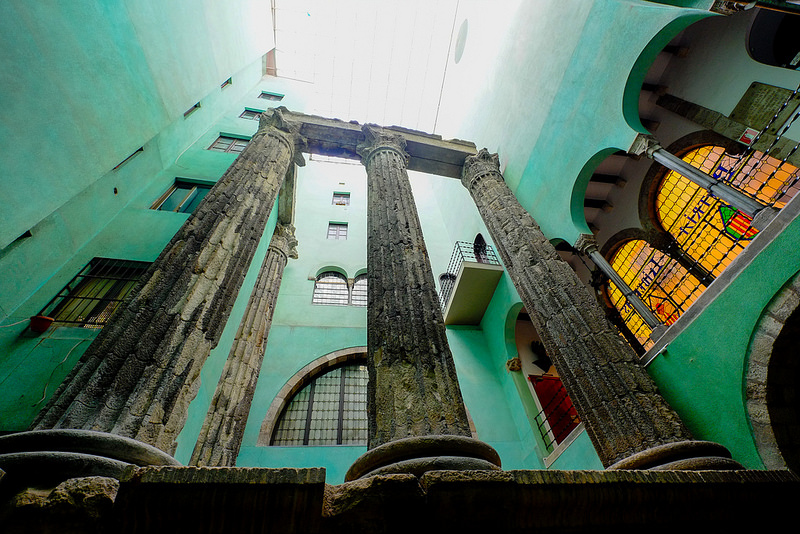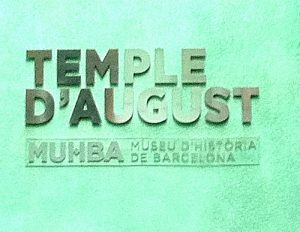

Photo credit: tvenchus via Visual Hunt / CC BY-NC
In the center of Barcelona is the Gothic Quarter, the oldest neighborhood in the city containing many still-standing pieces of Spanish history. Over time, the country restored many of the buildings in the area to preserve the richness of the history they still contained. Here, no vehicles are allowed and people must walk through mazelike, narrow streets to get from one place to another. Hidden inside the Gothic Quarter, the city’s oldest structure still stands, safely preserved for everyone to marvel at free of charge. The Templo de Augusto, or Temple of Agustus, is one of the final links to the Holy Roman Empire in the world today and it’s right here in the heart Barcelona.
Related article: The old and the new: Barcelona’s most stunning architecture
Table of Contents


Photo by enric archivell via Visualhunt
The Temple of Agustus goes back to the colony of Barcino, the old Roman city, in the 1st century BC when it was used as a place of worship of the Roman Empire. The temple was part of the colony’s Forum, a square connected by the city’s important buildings, including the city’s head basilica and the government building where the municipal senate met to discuss the law. The square also held the main market for buying and selling goods imported by merchant ships coming from the rest of the Mediterranean. The temple itself was not on the ground floor, but on a small hill called Mons Taber. After being mostly demolished, the temple’s columns would be constructed within other buildings until they were discovered in the 19th century during a new construction plan.
Photo by Following Hadrian via Visualhunt
After they were rediscovered with the podium restored, the Centre Excursionista de Catalunya, the building constructed on top of the site of the old temple, promoted its historical value with the assistance of Catalan architect Lluís Domènech i Montaner. Excavations and preservations suggest the temple was 35 x 17.5 meters on top of the platform, which is about 12 meters high, plus thirty-four columns in total. Adolf Florensa, who restored the building that currently holds the Museu Picasso, took over the rest of the process following the Civil War up to its current standing. Today, visitors can look upwards at the four surviving columns and the podium with its background visible on the walls.
Related article: Jewish History in Barcelona
Located at Calle Paradís, 10, the surviving, two-thousand-year-old Roman structure stands for all to see for free. It’s open on Monday from 10:00 to 14:00, from Tuesday to Saturday from 10:00 to 19:00, and on Sunday from 10:00 to 20:00. It’s closed on New Year’s Day, the 1st of May, the 24th of June, and Christmas Day. The Temple of Agustus is listed as a Cultural Asset of National Interest and is among the main historical sites of the Barcelona City History Museum.
Barcelona’s Mediterranean climate, with increasingly warmer and longer summers, makes air conditioning an essential feature…
Maybe you're thinking about selling a property or you've just inherited one or more real…
Do you enjoy strolling among trees and plants, away from the hustle and bustle of…
If you are planning to move to Barcelona for a few months or permanently, one…
ShBarcelona establishes itself as the leading agency within the Apialia Eixample Group, reaffirming its position…
Are you going to visit Barcelona this 2025? The vibrant Catalan capital once again becomes…